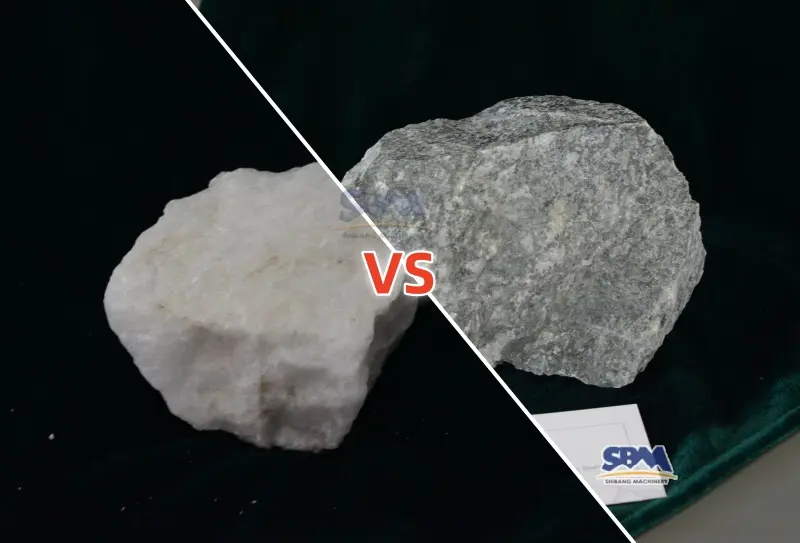
Choosing between quartz vs granite countertops depends on your priorities for appearance, maintenance, durability, budget, and lifestyle. Here's a detailed comparison to guide your decision:
1. Composition & Origin
-
Granite: Natural stone quarried from the earth. Each slab is unique, with variations in color, veining, and mineral flecks.
-
Quartz: Engineered stone (90-94% crushed quartz crystals + 6-10% polymer resins/ pigments). More consistent in pattern/color.
2. Appearance
-
Granite: Offers unique, natural beauty with organic patterns, depth, and crystalline sparkle. Ideal for earthy, luxurious, or traditional aesthetics. Limited color range (mostly neutrals, blacks, whites, reds).
-
Quartz: Wider color/pattern variety (mimics marble, concrete, or bold solids). Uniform appearance; best for modern, minimalist designs. No natural imperfections.
3. Durability & Maintenance
-
Granite:
-
Heat Resistant: Withstands hot pans (but prolonged heat can damage sealant).
-
Staining: Porous – requires sealing every 1-3 years. Oils/acids can stain if unsealed.
-
Scratching/Chipping: Resistant but can chip on sharp edges.
-
-
Quartz:
-
Non-Porous: No sealing needed. Resists stains, bacteria, and moisture (ideal for kitchens/bathrooms).
-
Heat Sensitivity: Resins can melt/burn under very high heat (>300°F/150°C). Use trivets.
-
Scratching: Hard but can scratch with sharp objects. Resists chipping better than granite.
-
4. Cost
-
Granite: $50–$200/sq. ft. Exotic types cost more. Installation can be complex due to weight/natural variations.
-
Quartz: $60–$180/sq. ft. Premium brands rival high-end granite. Consistent pricing.
5. Lifestyle Considerations
-
Choose Granite If:
-
You love natural, one-of-a-kind patterns.
-
You cook with hot pans frequently.
-
You don’t mind periodic sealing.
-
Prefer eco-friendly material (but quarrying has environmental impact).
-
-
Choose Quartz If:
-
You want low maintenance (no sealing, easy cleaning).
-
Hygiene is critical (e.g., food prep, kids).
-
You desire specific colors/designs.
-
Sustainability matters (some brands use recycled materials).
-
6. Other Factors
-
Weight: Both are heavy – ensure cabinets can support them.
-
UV Exposure: Quartz can discolor in direct sunlight; granite is UV-stable.
-
Eco-Impact: Granite has high transport emissions; quartz uses mining/polymers.
Quick Decision Guide:
| Priority | Best Choice |
|---|---|
| Low maintenance | ✅ Quartz |
| Heat resistance | ✅ Granite |
| Unique natural beauty | ✅ Granite |
| Consistent color/design | ✅ Quartz |
| Stain/bacteria resistance | ✅ Quartz |
| Budget flexibility | Both (mid-range similar) |
Tips for Choosing:
-
See slabs in person: Granite varies per slab; quartz samples may differ from full slabs.
-
Test samples: Spill oil/wine, place hot pans (if allowed) to observe reactions.
-
Check warranties: Quartz brands often offer 10–15 year warranties.
-
Consider edges/seams: Quartz seams are less visible; granite edges show natural layers.
Final Advice:
-
For a busy kitchen needing hassle-free care: Quartz.
-
For a high-heat, natural-look kitchen with maintenance tolerance: Granite.
More Information on my website. You can search on search engines: SBM Mill & Crusher








Comments (0)